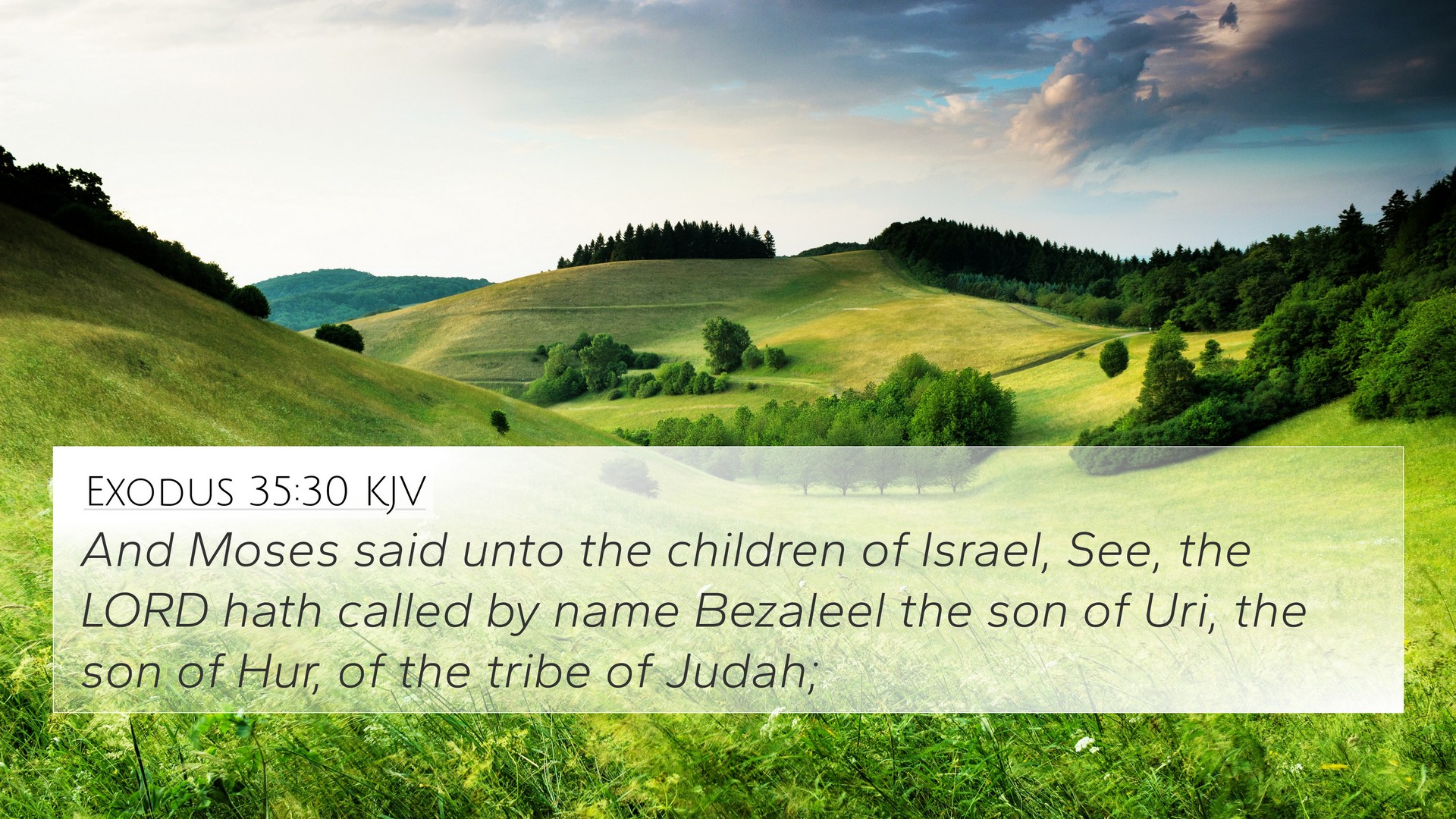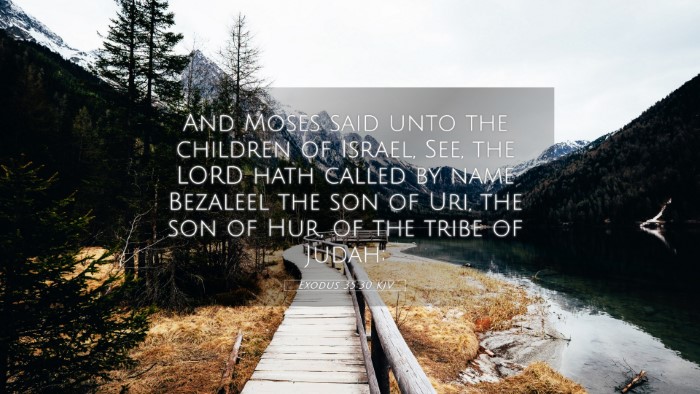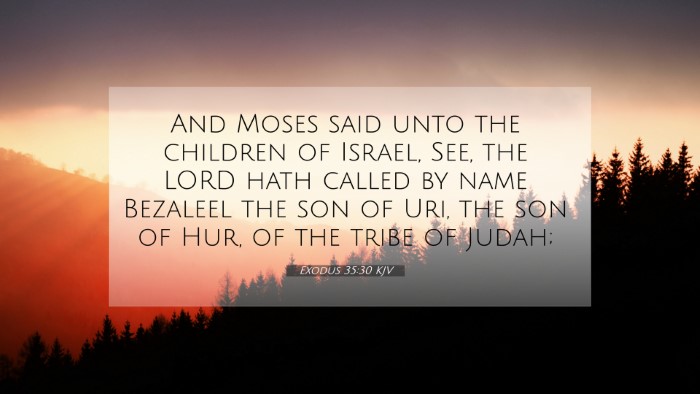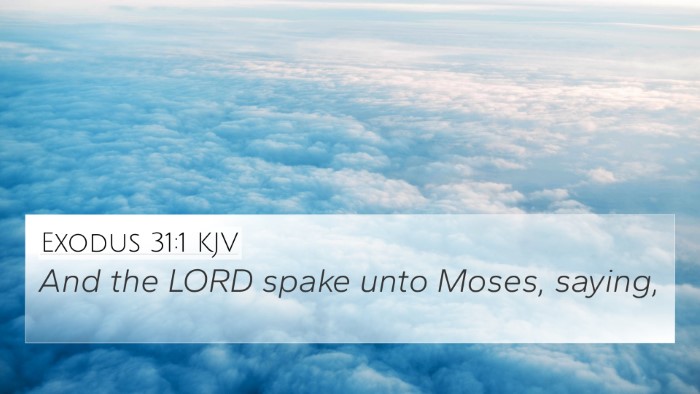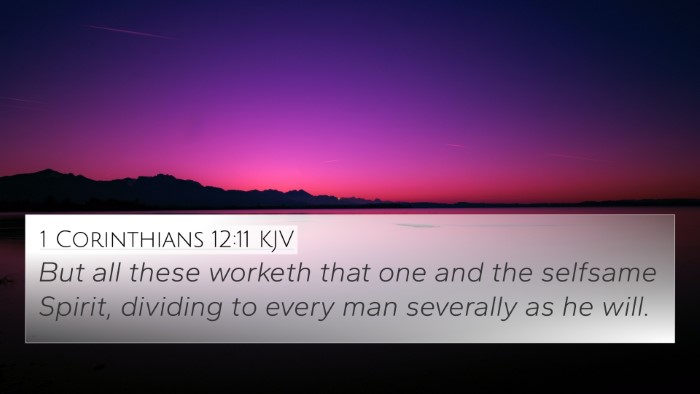Understanding Exodus 35:30
Exodus 35:30 states: “And Moses said to the children of Israel, ‘See, the Lord has called by name Bezalel the son of Uri, the son of Hur, of the tribe of Judah.’” This verse marks a significant moment in the construction of the Tabernacle, emphasizing the divine appointment of Bezalel for this sacred task. Below is a detailed explanation drawn from public domain commentaries to aid in understanding this verse.
Summary of Key Insights
- Divine Call: Moses delineates that Bezalel has been specifically called by the Lord, highlighting God's direct involvement and the importance of the task at hand.
- Lineage and Tribe: The mention of Bezalel’s lineage underscores the significance of heritage in Biblical roles. His lineage from Judah connects to the royal line, which adds importance to his appointment.
- Spiritual Empowerment: Bezalel is described as being filled with the Spirit of God, indicating that his skills and abilities are divinely endowed for the task of constructing the dwelling place of God.
Connections Between Bible Verses
This verse serves as a critical junction connecting various themes and narratives within the Scriptures. Below are some related Bible verses that help illustrate the broader context:
- Exodus 31:2-5: This passage reinforces God's specific choice of Bezalel, describing the divine gifts he has received for craftsmanship.
- 1 Chronicles 2:31-32: It provides the genealogy of David, from the same tribe as Bezalel, emphasizing the significance of Judah in God’s overarching plan.
- Acts 7:44: Stephen references the tabernacle of Moses, linking the spiritual significance through the ages.
- 1 Peter 2:9: This verse speaks of believers as a chosen generation, drawing parallels to the special calling of Bezalel.
- Exodus 25:8: The command to build a sanctuary ties back into the broader narrative of God's desire to dwell among His people.
- Deuteronomy 6:12: This verse speaks of remembering God’s divine acts, highlighting how divine appointment leads to fulfilling His purposes.
- Romans 12:6-8: The New Testament elaborates on the spiritual gifts in the community of believers, akin to Bezalel's divinely-given skills.
Comparative Bible Verse Analysis
Analyzing Exodus 35:30 alongside these cross-referenced verses reveals a deeper understanding of leadership and divine selection:
- Thematic Link: Both Moses’s appointment of Bezalel and Paul’s discussion of spiritual gifts represent the theme of God's choice for ministry.
- Old and New Testament Connections: The lineage from Judah in Exodus to Christ’s genealogy highlights God’s unfolding plan through generations.
Tools for Bible Cross-Referencing
To further delve into connections, various tools for Bible cross-referencing can be utilized. Such resources include:
- Bible concordances to locate themes and keywords.
- Cross-reference guides which help trace linked verses.
- Bible reference resources that lay out relationships among scripture passages.
Cross-Referencing Bible Study Methods
Engaging in a cross-referencing Bible study enriches one's understanding of scripture. Here are methods for effective study:
- Begin with a verse and use a concordance to find related passages.
- Utilize thematic studies focused on specific doctrines or events.
- Engage in group discussions to explore diverse interpretations.
Conclusion
Exodus 35:30 serves a critical role in illustrating God’s direct involvement in the affairs of His people. It highlights the importance of divine appointment and gifts, and invites believers to recognize their own callings. By understanding this verse in relation to others, one can appreciate the intricate tapestry of God’s redemptive plan laid throughout scripture.
FAQs
- What verses are related to Exodus 35:30? Related verses include Exodus 31:2-5, Acts 7:44, and Romans 12:6-8.
- How can I find cross-references for Exodus 35:30? Utilize a Bible concordance or a cross-reference Bible study tool.
- What themes emerge when comparing Exodus 35:30 with other verses? Themes of divine appointment, skillful ministry, and God's presence among His people are prevalent.
